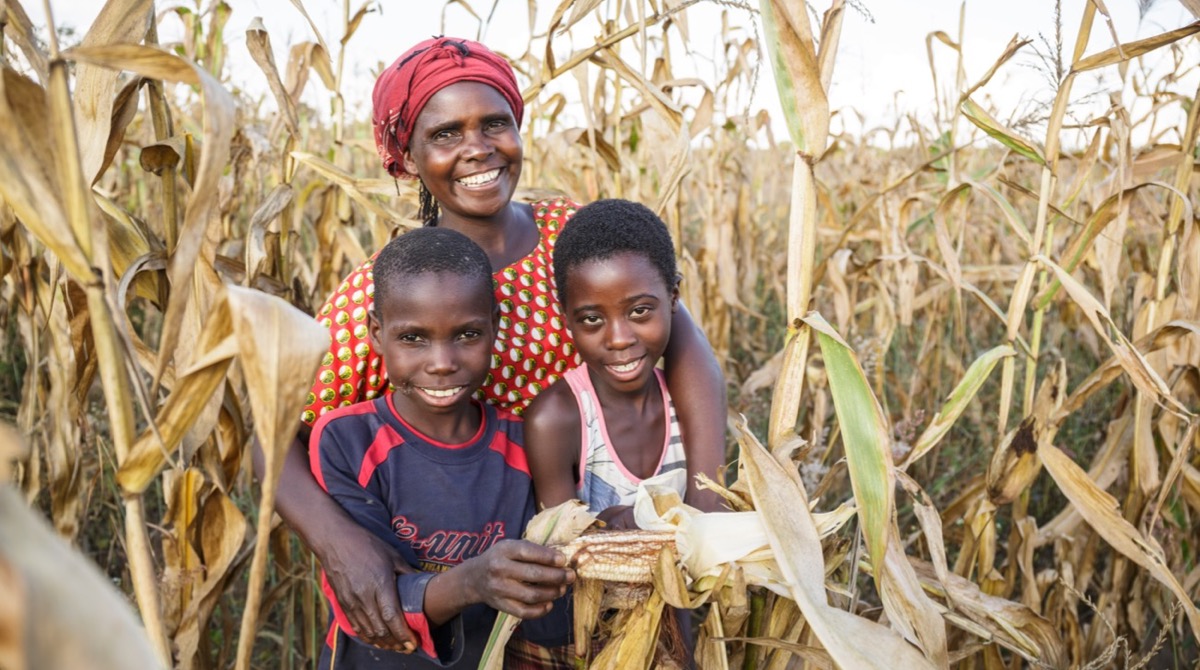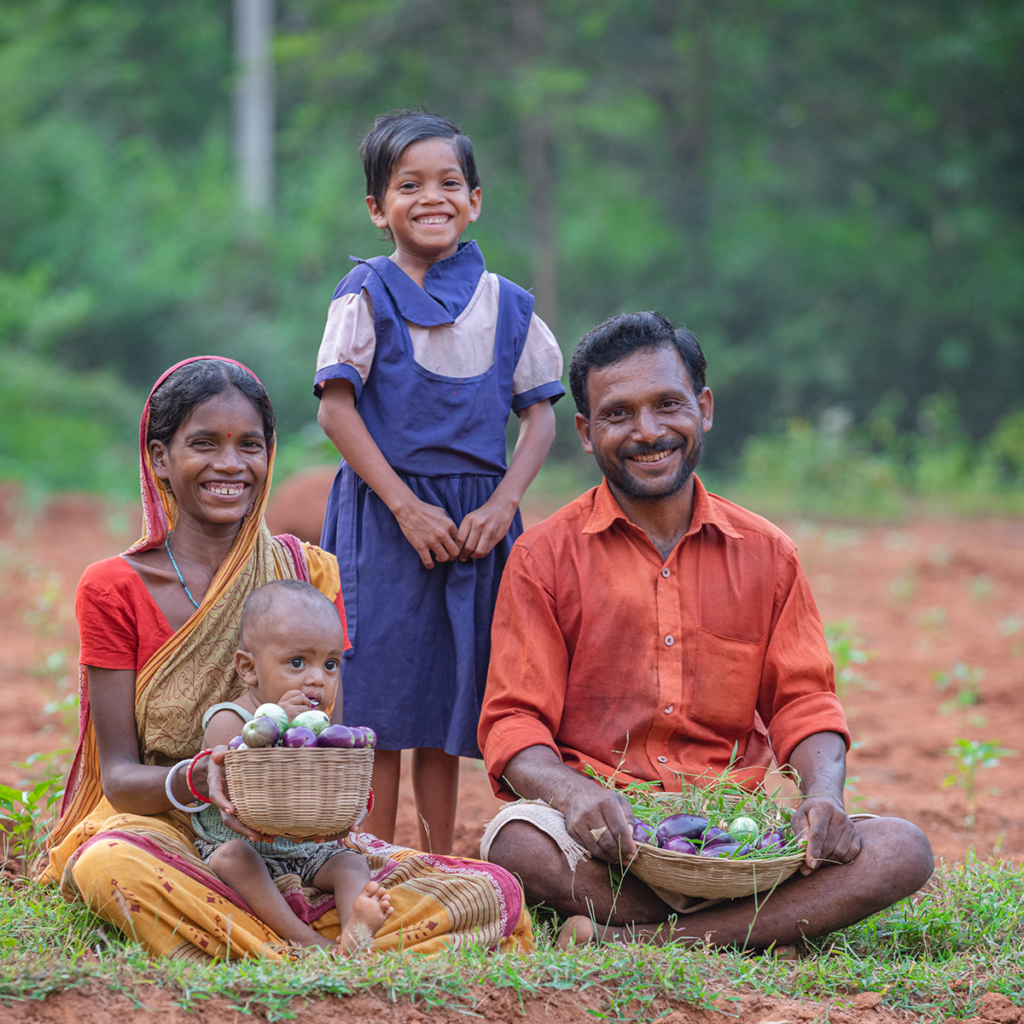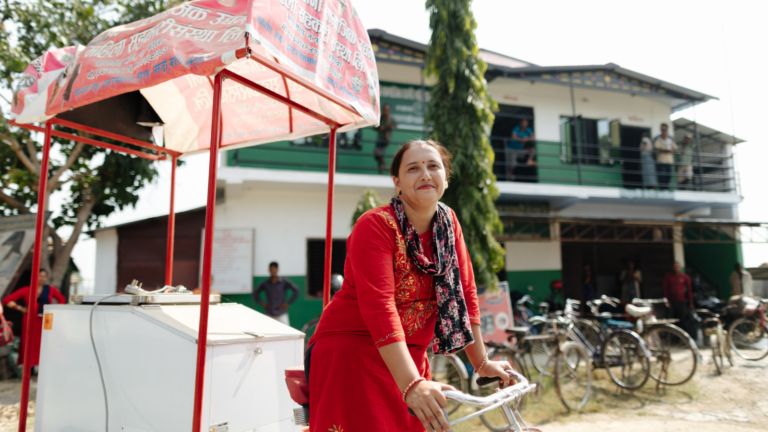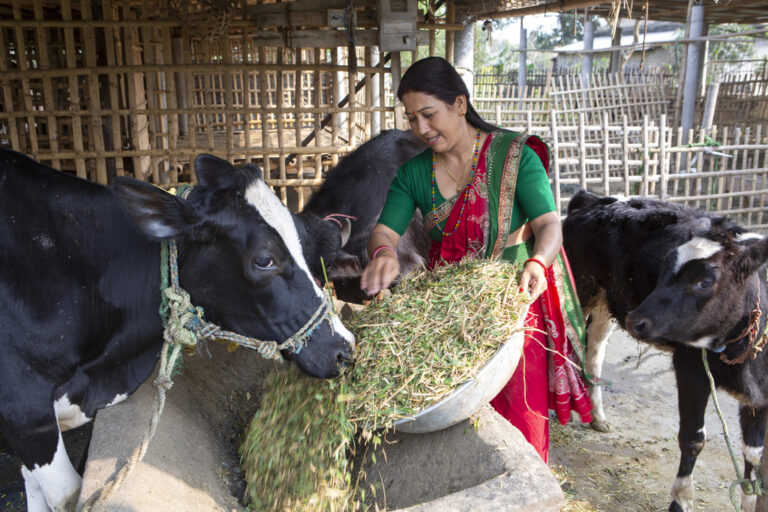For much of her day, Budhini Hansda tends to the vegetables on her family’s small plot of land in Odisha, India. Together with her husband, she uses buckets and bowls to irrigate the green stalks growing in neat rows, taking great care in shepherding their crops from seedling to healthy plant to harvest.
“On our 1-acre land, we cultivate eggplant, cauliflower, beans, chili, pumpkins, okra, cabbage and spinach according to the season,” said Budhini, who received training on farming practices from Heifer India. Since then, she improved the quantity and quality of her garden’s yield, most of which she sells at the local market and some she keeps for her family’s consumption.
The Hansda’s are just one of the estimated 500 million smallholder farming households worldwide, a cohort of agriculturalists amounting to more than 2 billion people.
Heifer believes ending poverty and hunger begins with agriculture, and smallholder farmers are at the heart of this effort. With the right knowledge, tools and inputs, farming families like the Hansda’s can earn a Sustainable Living Income and supply their communities with nutritious food.
But what is a smallholder farmer?
A smallholder farmer is a producer who rears livestock, raises fish or cultivates crops on a limited scale: In the developing world, a smallholder farm is a family-owned enterprise operating on up to 10 hectares, or 24 acres, with most smallholder farmers cultivating less than 2 hectares, or 5 acres, of land.
A smallholder farmer is often characterized as a family farmer since many rely on relatives’ labor to meet production needs, and they typically retain a portion of their harvest for household consumption. Smallholder farmers, sometimes referred to as “small-scale farmers,” include farmers who own the land they work and those who do not.
Why are smallholder farmers important?
Though the land smallholders work and the total quantity they produce may be dwarfed by their larger, industrial counterparts, their impact on the world is anything but minimal: According to recent research, farms smaller than 5 acres produce roughly 35% of the world’s food, and smallholders provide up to 80% of the food supply in Asia and sub-Saharan Africa.
“A smallholder farmer is not only a farmer for his or her profession. It is actually a way of life,” said Oscar Castañeda, Heifer’s senior vice president of Americas programs. Supplying the local food system and feeding the community, he argues, often amounts to more than a profession for the world’s smallholders.
“It is the way that they look at the land,” he said. “They know it as perfectly as they know all the lines of their hands.”
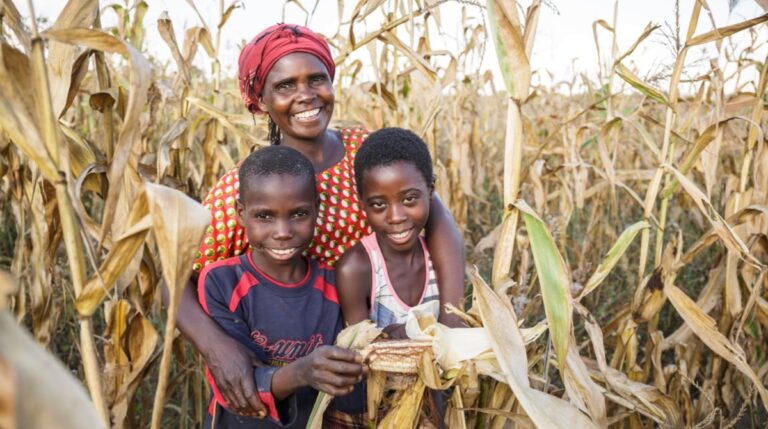
Rose Nambi with her grandson Elias and granddaughter Safrina in their corn field in Zambia.
Heifer works with smallholders to fortify this connection between food security and resilient communities. When smallholder farmers produce a higher quality and quantity of food, they can earn more income, better feed their families and provide more food for the local marketplace — reducing prices and improving diets.
Female farmers, like Budhini, play an especially vital role in this effort. Women make up almost half the agricultural labor force in developing countries, despite limited access to land rights, finance or extension services, and studies show family health and nutrition are significantly related to mothers’ knowledge of dietary needs.
“I recently received nutrition training and I learnt how my body and my child needs more care and nutrition at this stage,” said Budhini, who has a 7-year-old daughter and 1-year-old son. “Following what I have learnt, I am going to ensure a proper [balanced] diet for all my family members.”
What challenges do smallholder farmers face?
Smallholder farmers face a host of challenges on account of their size and often remote and rural location, which hinder their ability to grow a prosperous business and provide food for their families. Many lack access to credit, formal markets and high-quality inputs like seeds, farming equipment or medicine to keep their animals healthy.
Limited economic influence and access to finance on account of their size is a major barrier for the world’s smallholders, said Oscar. “We help small-scale farmers overcome this obstacle by working through co-ops as a vehicle to organize technical assistance and organize access to capital.”
When smallholder farmers organize — into agricultural cooperatives, associations, self-help and women’s groups — they increase their access to markets, can participate more equitably in local value chains, and bolster their bargaining power to earn more for their goods.
Supporting farmers to share knowledge and equipment, and hold each other accountable in a formal group, leads to long-term change.
“Heifer comes and gives training and goes, but these cooperatives are so essential in [a smallholder farmer’s] day-to-day life,” said Neena Joshi, Heifer’s senior director of Asia programs for cooperative development.
“Joining together with women and helping them to journey together as leaders of the groups and the cooperatives … that persistence, that long-term engagement, that mentoring is critical.”
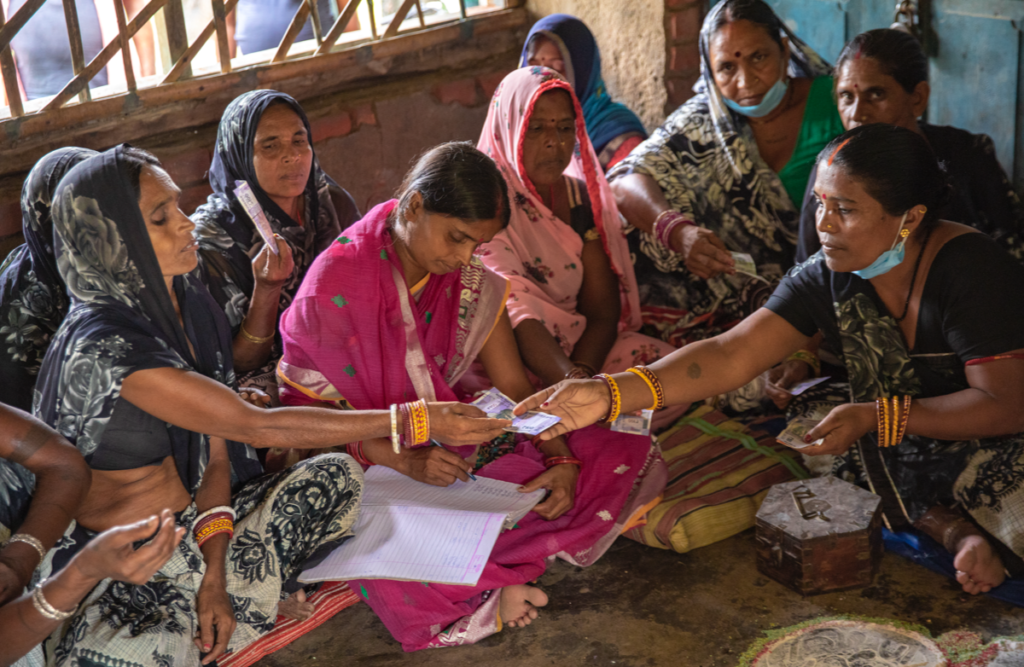
Formal organizing into self-help groups, like this one in India, lets smallholder farmers pool knowledge and resources, increase record-keeping and access new markets.
What is the future for smallholder farmers?
Building sustainable food systems is critical for feeding a global population nearing 9 billion — and smallholder farmers are central to combating hunger and malnutrition, while caring for the Earth.
The largest 1% of farms worldwide — those larger than 120 acres — operate more than 70% of the world’s farmland, and industrial agriculture consumes large quantities of pesticides, energy and freshwater resources, producing significant volumes of greenhouse gas emissions.
Heifer supports smallholders to incorporate climate-smart agricultural practices to protect and preserve the environment. These include the thoughtful use of resources and byproducts — like using livestock waste to power biogas stoves for clean cooking fuel — and constructing solar-powered hatcheries, to keep growing chicks warm using renewable energy.
Whether they are cultivating poultry in Kenya, cardamom in Guatemala or goats in India, smallholder farmers are uniquely positioned as agents of community change — and they’re actively building a future in which food is available, income is steady, and lives free from poverty are possible.
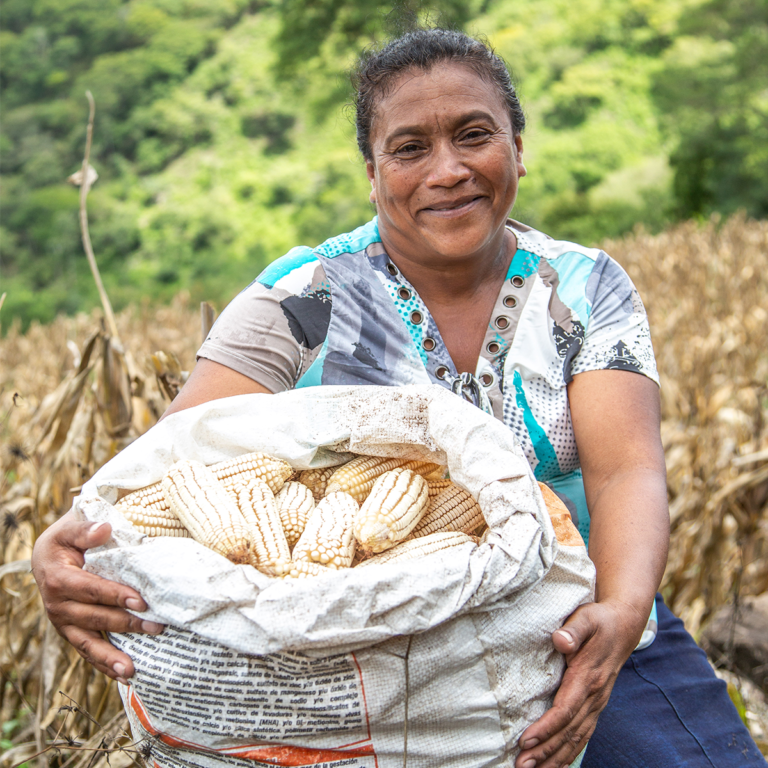
Yolanda Montalván with a fresh harvest from her field in El Chacón, Nicaragua.


